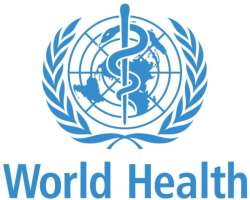Malaria: the Institute of Tropical Medicine focuses on elimination using knowledge

GENEVA, Switzerland, April 19, 2013/African Press Organization (APO)/ -- Malaria threatens the lives of hundreds of thousands of people in Africa, Asia and Latin America. Nevertheless, the disease can be prevented and treated well. Over the past years, malaria was pushed back in some countries. However, parasites inevitably develop resistance against new medicines, and vector mosquitoes against insecticides. Only innovative and multi-disciplinary research in worldwide partnerships can provide the knowledge needed to stay ahead of malaria. Therefore, the Institute of Tropical Medicine's (ITM) motto for World Malaria Day (25 April) is "using knowledge against malaria".
"Malaria still takes an unacceptable toll on the health and prosperity in large parts of the world. We might not be able to eliminate the disease yet, but can eliminate it as a brake on well-being and development in the South."
"Our scientific strategy brings together innovative basic and applied research, new clinical interventions and population-based control. Post-genomic research tools, the integration of epidemiology with social sciences and solid world-wide collaboration result in exciting scientific advances. More than ever we are aware of how all parts of the biological, human and societal chains
interact, and how they can be affected to control and even eliminate malaria. Armed with knowledge we can fight malaria more forcefully than ever before, and look into the future with hope," said ITM director Bruno Gryseels.
ITM researchers perform multi-disciplinary and innovative research that leads to new insights and applications for the biology, pathology, diagnostics, treatment and combat of malaria.
Increasing resistance, new research possibilities thanks to in vitro culturing P. vivax
This research also leads to scientific breakthroughs. For instance, ITM researchers recently succeeded in cultivating the Plasmodium vivax parasite in vitro for the first time. As a result new medication and vaccines can now be developed for this less known species too. Read more: http://bit.ly/Z7V393
Community protection: a new plan of attack
At the other end of the spectrum, ITM innovates with an ultimate elimination strategy. Mosquito nets force the disease back, but are not sufficient to eliminate it completely. That is why the research focuses on the large-scale use of mosquito repellants that also offer protection for those who are still outside at dusk. Read more: http://bit.ly/13lMveq
An anthropological view on the use of sprays
For such research, not only the parasite and the mosquito are thoroughly researched, but so is human behaviour. Various strategies against malaria have proven to be effective. In practice, they often fall short. People do not easily change their behaviour, certainly not permanently. That is why ITM performs anthropological research to map out the cultural factors relating to the disease. Read more: http://bit.ly/103ueOM
Text messages for a better diagnosis
In turn, an original clinical innovation consists of the use of mobile telephones and smart phones that are wide-spread even in remote areas. They are used to quickly report the visual results of rapid diagnostic tests (RDTs) so local health workers can immediately start treatments. Research among nearly 2000 end users in the Democratic Republic of Congo (DRC) showed they have difficulties identifying parasite species and recognising a positive, negative or invalid test. In addition, faint or weak results are often misread. This provides researchers of INRB in Kinshasa and ITM valuable information to training methods and materials related to the use of rapid tests. Read more: http://bit.ly/Z3PdXp
Malaria in a nutshell
• Malaria is an infectious disease that is caused by parasites that enter the bloodstream via a mosquito bite. The disease causes fever, shivers, muscle aches and head aches and can result in death if untreated. Malaria can be prevented and cured. Nevertheless, around 650,000 people die of the disease each year.
• There are various types of malaria parasites. Plasmodium vivax, Plasmodium ovale, Plasmodium malariae,Plasmodium falciparum and Plasmodium knowlesi can infect people.
• Plasmodium falciparum causes Malaria Tropica, the most dangerous form of malaria. A deadly outcome is more likely than with other types.
• The parasites squeeze their way into our red blood cells where they multiply. A few days later (the timing depends on the type of parasite), the infected red blood cells burst open simultaneously and an enormous amount of new parasites breaks free, ready for a new round. This causes the typical malaria fever.
• Malara facts & figures (infographic, PDF file) http://bit.ly/14B3H4n
